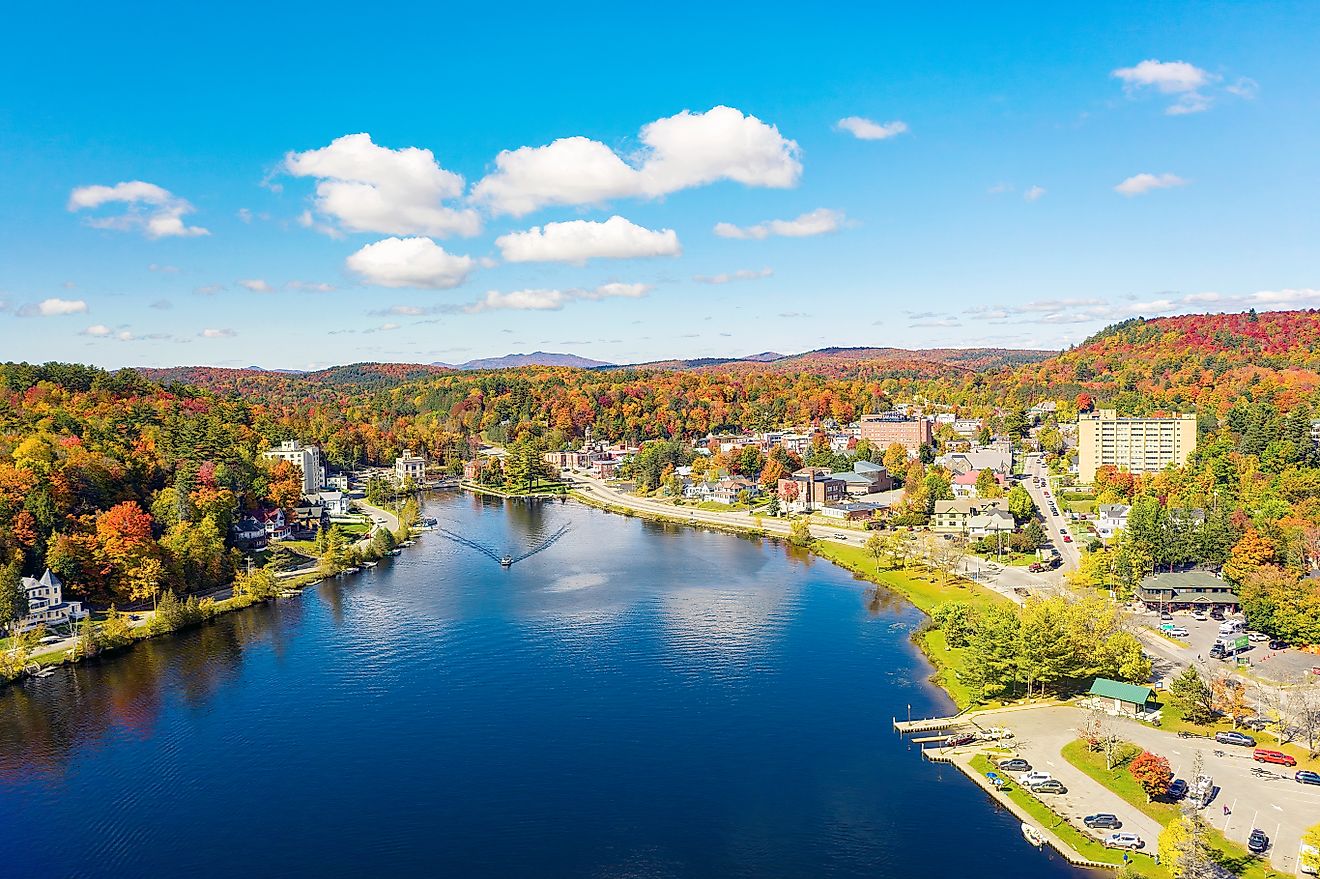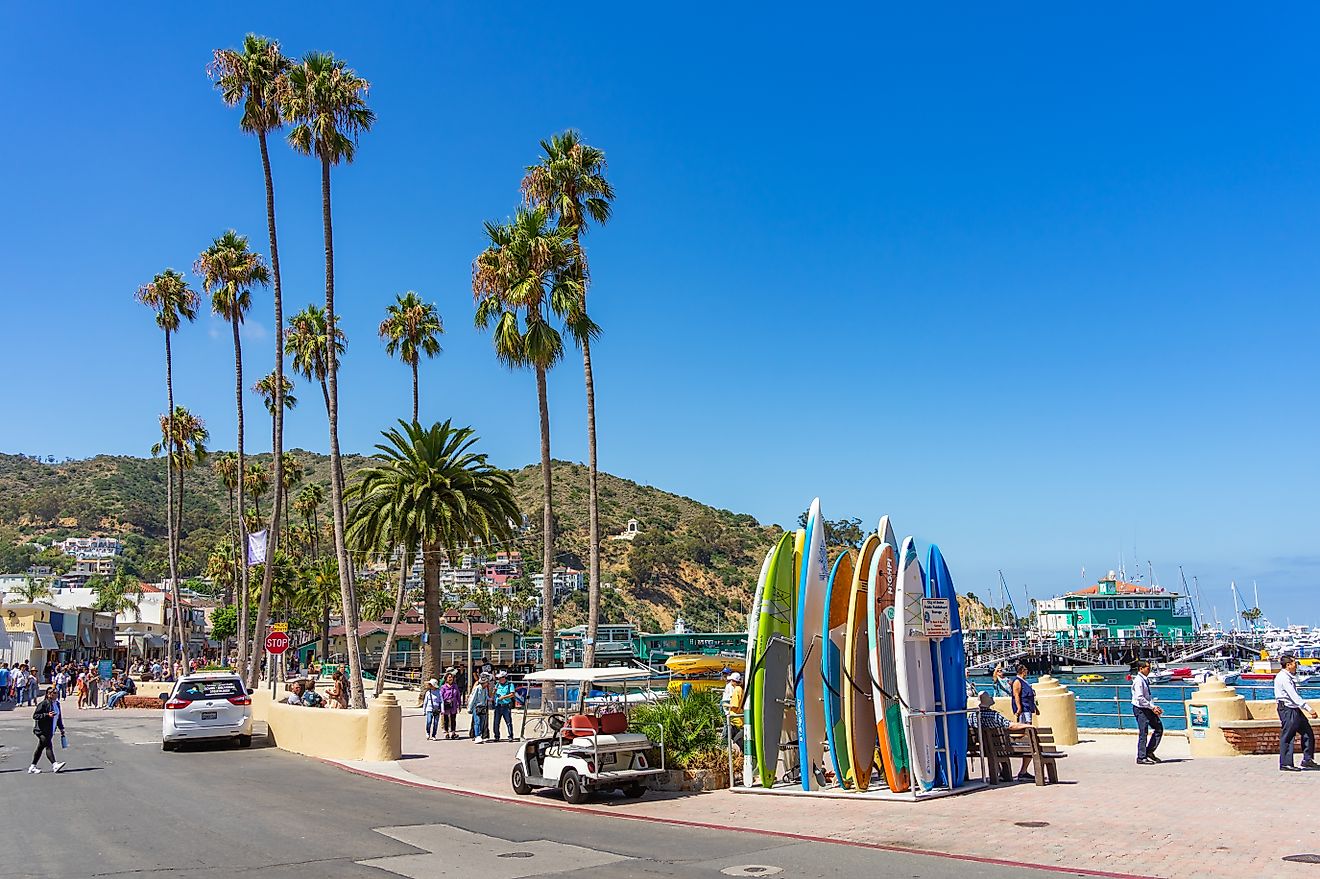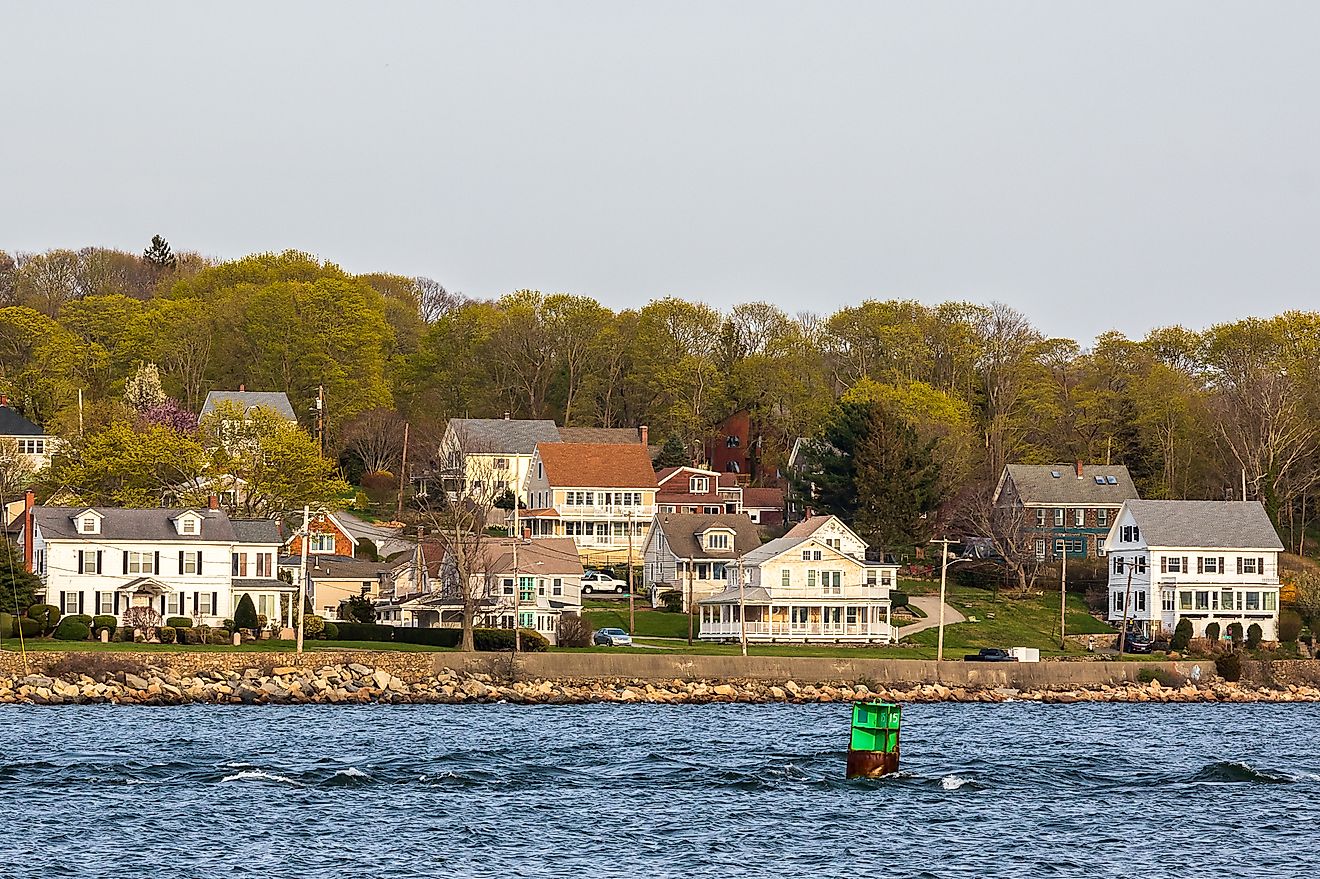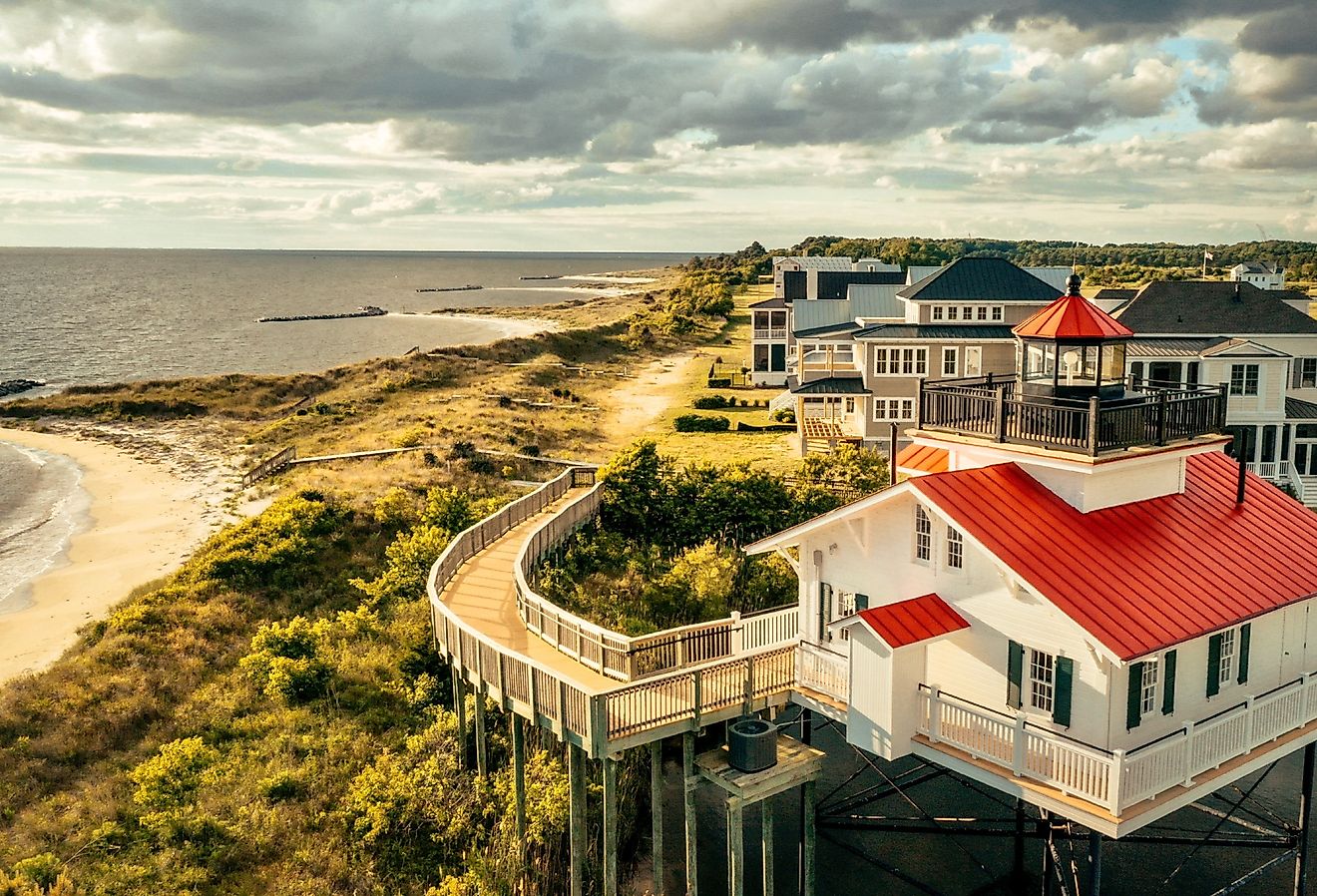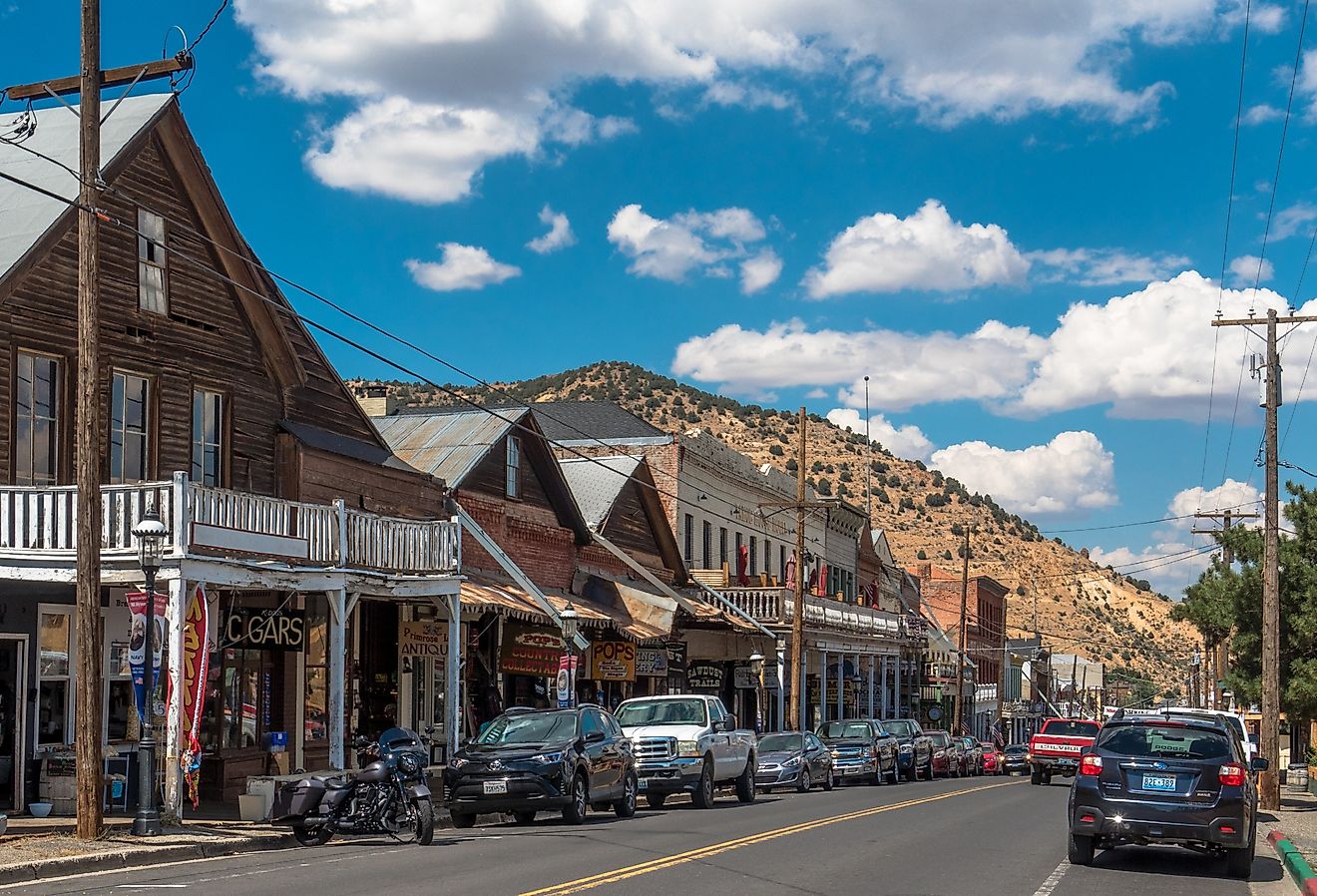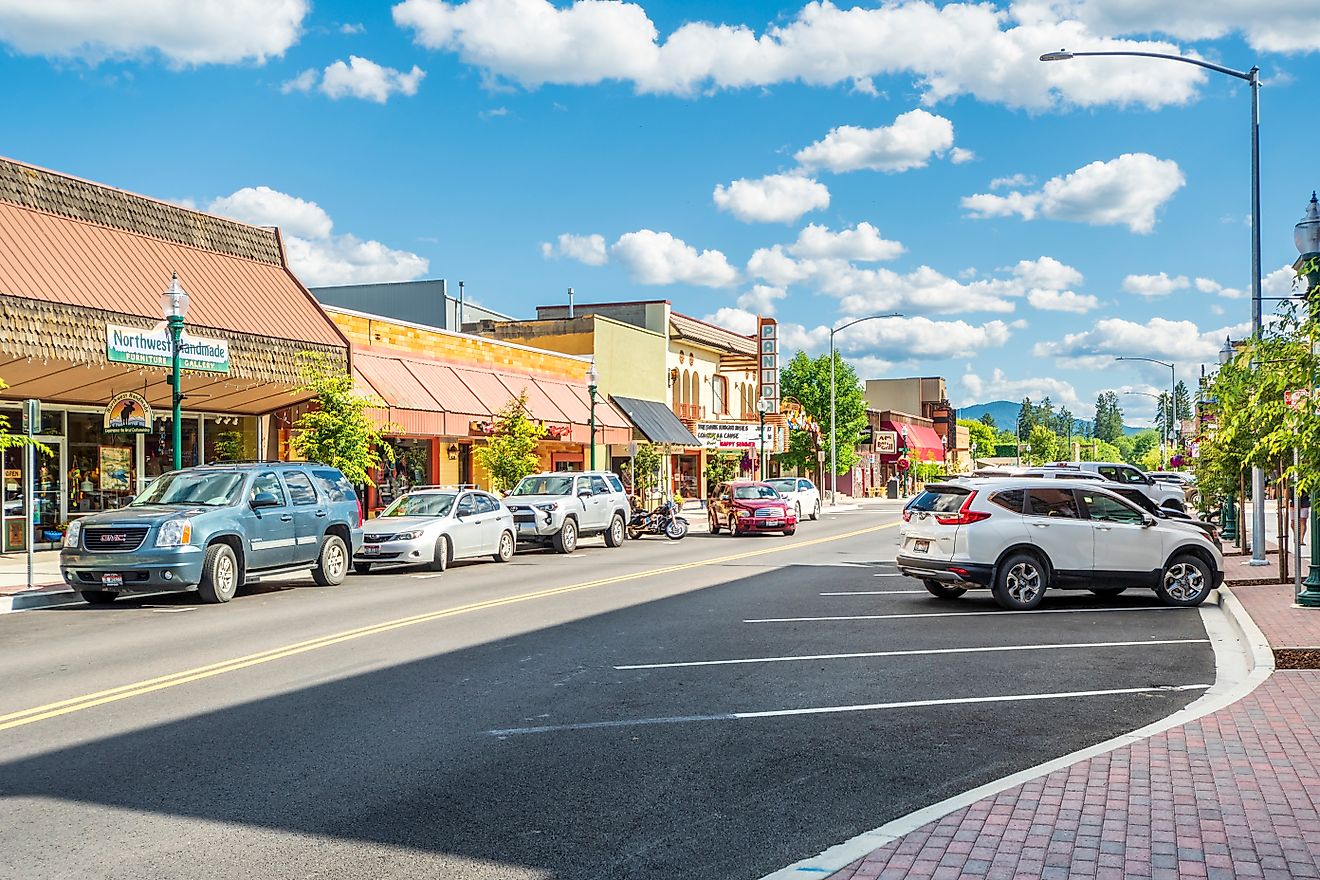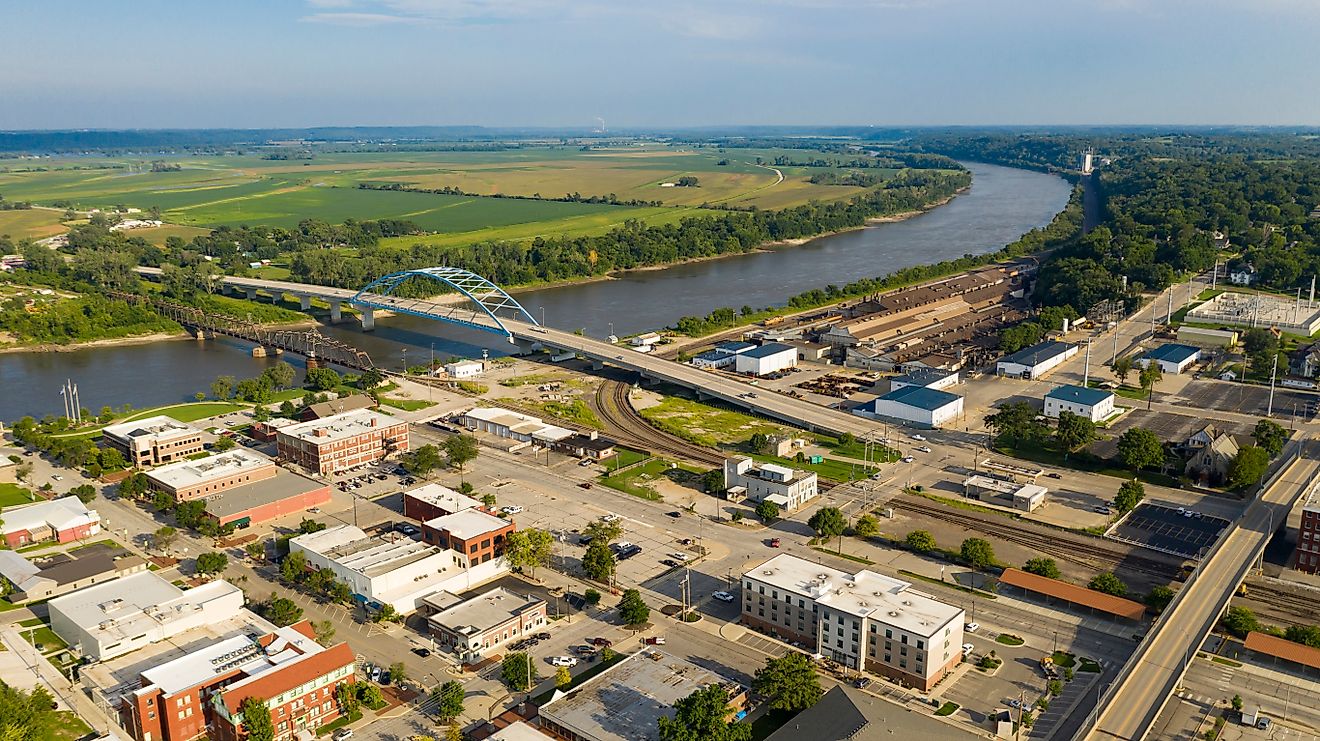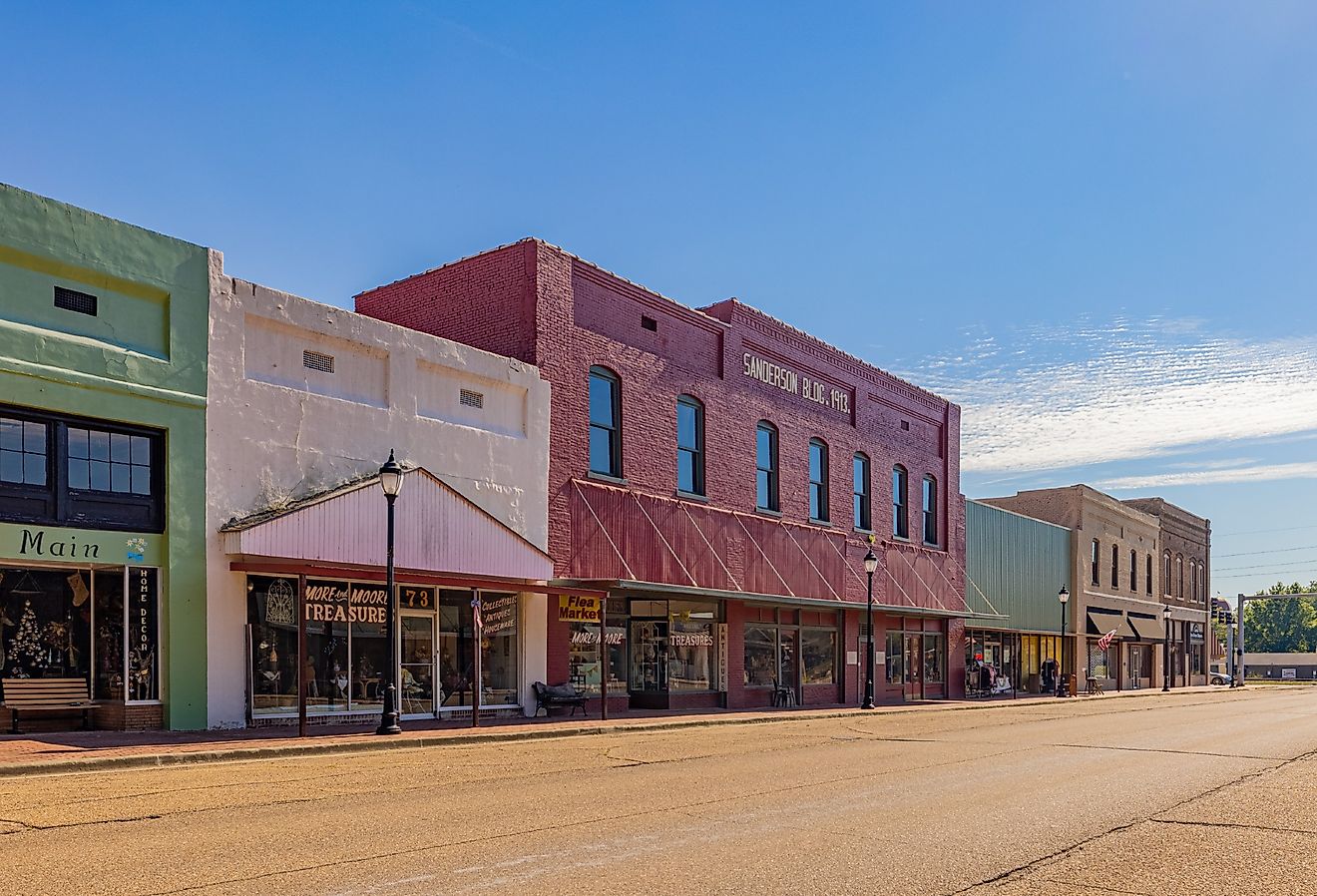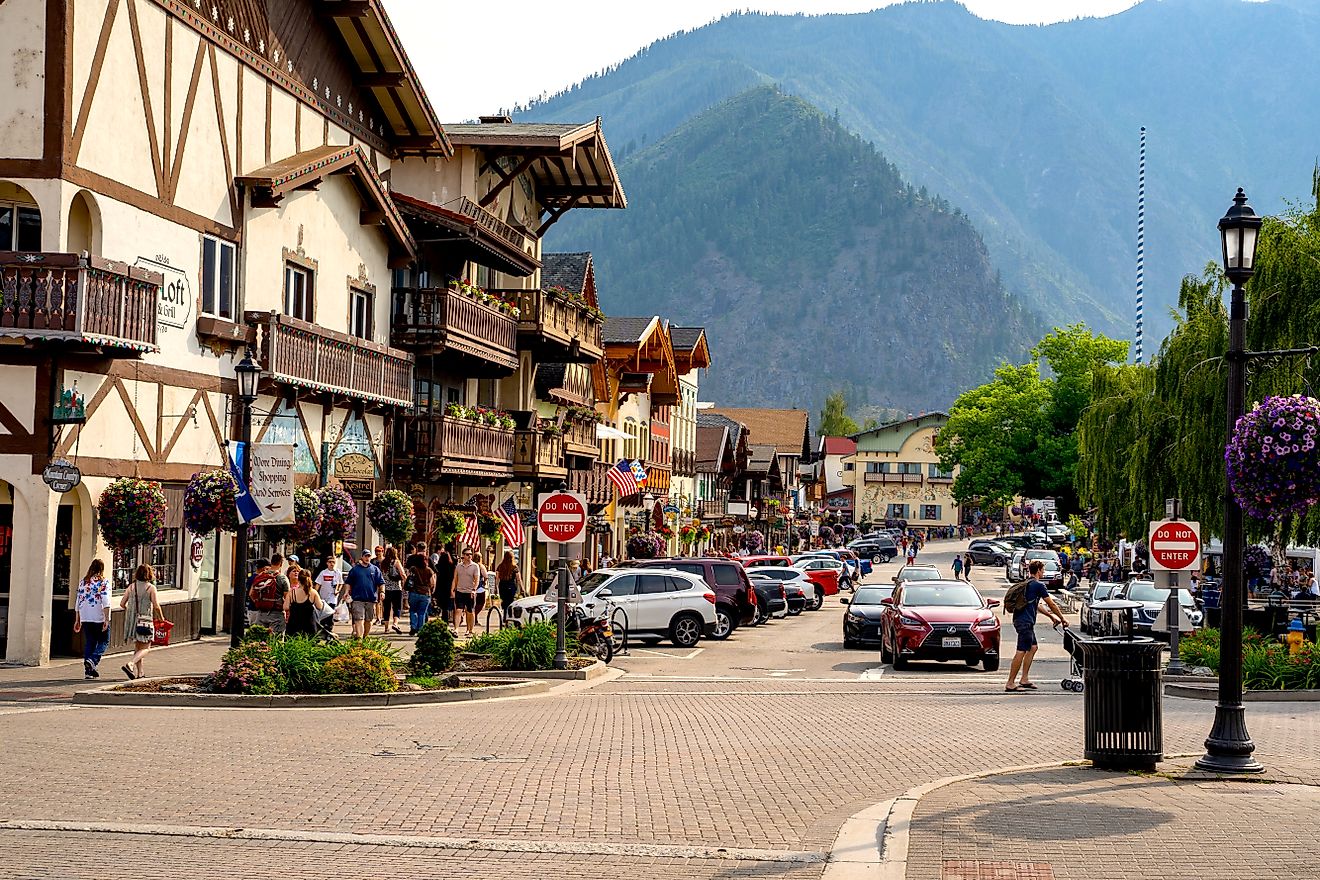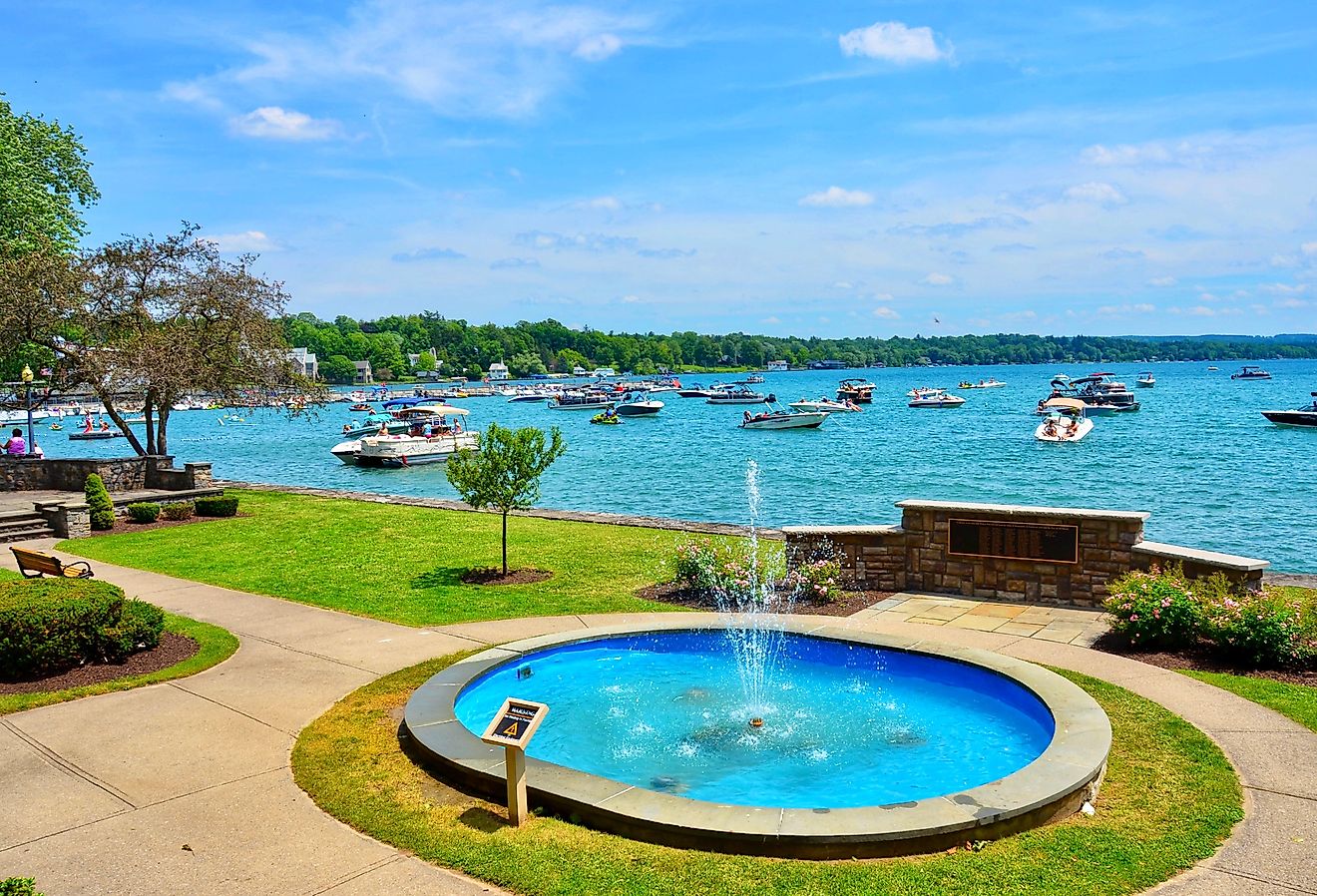
Sulphur, Oklahoma
With a name like Sulphur, this once-mining town has turned into a tourist destination for its water features. Take a hike down the Travertine Trail, where Oklahoma's largest artesian spring resides. In the olden days, visitors smeared the sulphur-rich mud on themselves for its healing properties. Stay a night at the Historic Artesian Hotel and Casino, where famous guests like the 27th President of the United States, William Howard Taft, and famous Western Actor John Wayne stayed. With springs, a mountain range, and many parks and lakes, Sulphur is known to tourists for its outdoor activities.
Geography And Climate Of Sulphur

Sulphur is located in Murray County in the southern part of the US State of Oklahoma. The city is situated about 135km from Oklahoma City - the state's capital. Sulphur covers a total area of 18.24 sq. km, of which only 0.48 sq. km is covered by water, and 17.76 sq. km is occupied by land. Sulphur is placed within a geological area known as the Arbuckle Mountains. Dating back to the Precambrian Era, these mountain peaks were once taller than the Rocky Mountains and, through ice ages and erosion, stand as they are today. However, beneath the rhyolite, limestone, and granite rock lies the Arbuckle-Simpson aquifer that emerges from the earth in the form of springs. Thus, with the presence of sulphur in the water, it flows in streams with a vibrant blue tinge. Many lakes have formed around the natural curvature of the Arbuckle Mountains, which expand over 110 km.
With a humid subtropical climate, Sulphur experiences four seasons, with distinctly long and muggy summers and short winters with minimal snow. Over a year, Sulphur collects 76.8 days of precipitation, whereas the US average is 106.2 days. Rainfall totals account for 1054.2 mm annually, with a total snowfall amount of 86.36 mm. The year's coldest month is January, with an average temperature of -2.8 °C, while the year's warmest month is July, with 34.1 °C.
History Of Sulphur

Before the first settlers, the land of what would be Sulphur was a part of the Chickasaw Native Americans. The first setter was Noah Lael, the son-in-law of former Chickasaw Governor Cyrus Harris, who would build a ranch in Pavilion Springs. However, Lael sold the ranch in 1882 to Perry Forman, who was a Chickasaw rancher. In the early days of Sulphur, around 1890, a band of fishermen built a clubhouse in which meetings and conventions could be held. This building was sold for the use of a hotel and underwent an expansion that incorporated the land of Forman’s ranch. This hotel would later open as the Artesian Hotel in 1906. However, the ranch land was plotted out to form a town, and a post office was erected in October 1895. The addition of the railway in 1902 connected Sulphur to Scullin, which conjoined with St. Louis and San Francisco railways. This year also saw an agreement between the Chickasaw Native Americans and the US Government in which a Native American reservation was established around the springs and named Sulphur Springs Reservation. Moreover, in 1904, Platt National Park was established, and in 1976 it was merged into the Chickasaw National Recreation Area.
The Population And Economy Of Sulphur
Sulphur has a population of 5,139 inhabitants, with a population density of 283.94 persons per sq. km. The median household income is $65,190, with a gross monthly rent of $690. The average age of a resident is 36.8 years old. On the cost of living index, Sulphur rates at 74.8, whereas the state of Oklahoma is 83.7, which means healthcare and groceries cost more than the state. Yet, 20.93% of residents live below the poverty line.
Sulphur has an unemployment rate of 4.4%, whereas the US average is 6.0%. The most significant economic sectors are healthcare and social assistance accounting for 13.6%, food and accommodations at 12.6%, and retail trade at 11.7%. Mining is still a prevalent industry, contributing 7.6% overall to the economy, unlike the US average of 0.6%. Although there are some gravel pits and limestone mines around Sulphur, views on this industry are shifting. The Arbuckle-Simpson aquifer is considered a sensitive water resource that can only be replenished through rainwater, with water only able to flow out of it. The mines nearby use the water from the streams and lakes, thus adding pressure on the aquifer, which is also used by Murray County residents. This is why thoughts on mining in Sulphur are evolving.
Attractions In Sulphur
Chickasaw National Recreation Area

A conservation area of the Arbuckle foothills, the main attraction is the 4,002 hectares of Chickasaw National Recreation Area, which is everything to do with water from waterfalls, springs, and the largest body of water in the park - Lake of the Arbuckles. Here, visitors can camp, hike, mountain bike, fish, boat, canoe, kayak, stargaze, and hunt. The park has many hiking trails, including the aforementioned Travertine Trail. However, there are more notable hikes within the confines of the recreation area.
Buffalo Pasture Loop
The Buffalo Pasture Loop features buffalo in its natural habitat. Pets are allowed as long as they are on a leash, and the easy gravel walk can be accessed from many trailheads. There are opportunities to see the large creatures along the trail, including the Buffalo Trail and Viewpoint. The trail also heads to scenic Bromide Hill and loops around a ranger station.
Little Niagara Falls

Little Niagara Falls is a natural waterfall found within the former Platt National Park. This area still features many of the rustic infrastructures that date back to World War II.
With roots enshrined in nature, Sulphur showcases how people live symbiotically with nature through conservation and appreciation for the land. The sulphur springs that attracted curious visitors still rise from the ground, and the healing mud that people slathered themselves in to cure ailments is still present today. With famous guests and a historic hotel that stands at its center, the allure as a sunny tourist destination remains.
